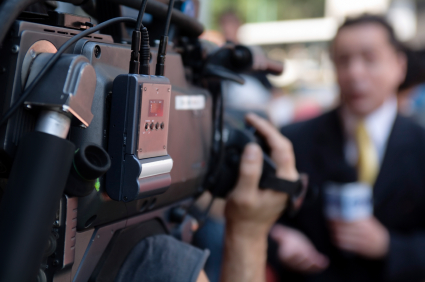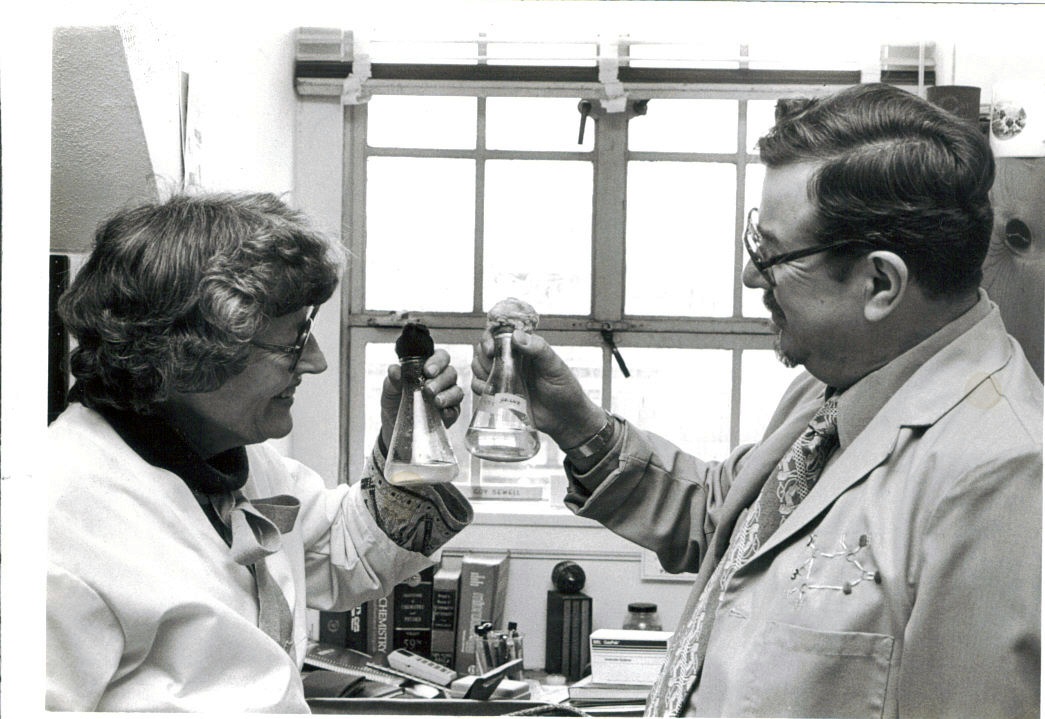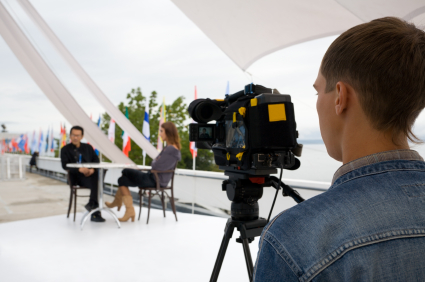Prepping & Conducting a Video Interview
Posted: February 24, 2011
Before anyone shouts, “Lights, Camera, Action!” some prep work needs to done. First, and this sounds so obvious: Know who you are interviewing. It's best to already know the answer to every question you are going to ask! That’s not always possible of course, but that’s best.
Tips for interviewing people on video
First, and this sounds so dang obvious I almost hate to say it: Know who you are interviewing. I always found it best to already know the answer to every question I asked! That’s not always possible of course, but that’s best.
Research who they are and why you are interviewing them. It’s deadly to be caught in the middle of an interview without knowing this stuff! The person whom you are interviewing will not be happy, I promise.
If they have written a book, read it. Or at least read the Amazon reviews of it!
Watch other interviews they have done if that’s possible. Read their bio and any other pertinent info you can find on both the person and the subject matter. If the person has a PR rep, they will hand you a bio packet.
Now, depending on the interview, one of those two things will be the most important:
- The person themselves
- The subject matter
In other words, are you interviewing Brad Pitt or a local doctor about colon cancer? Spend most of your research time on the more important of the two.
Some interviewers purposely don’t research much because they say they want to truly be surprised, just like the audience will, at whatever the person says.
To a point, I can agree with that. It’s always nice to find out something exciting and react spontaneously , but generally speaking, your interviews are going to be lackluster if you don’t research first. You have to know where you are going with it all. If you do not know this person’s story ahead of time, you might miss the best part or be led astray on a tangent.
Do a pre-interview
Talk to them on the phone or in-person before the scheduled interview. Be informal and friendly but inquisitive. This not only helps you get a feel for the person, but it will help them feel more comfortable. Their comfort level is CRITICAL.
Having been a part of probably at least 20,000 video interviews, I’d say the comfort level of the interviewee is one of the most important ingredients. Most people being interviewed want to know the questions ahead of time. They want to be prepared and are scared of being caught off guard.
It’s your job to quell that fear.
If you speak with them on the phone first and conduct a mini interview when there are no cameras and lights glaring in their face, it will go a long way toward making them feel comfortable during the real deal. In other words, this is like a rehearsal with absolutely no pressure. In a sense, they are practicing for the interview and we all know the more practice the better.
Plus, the more they get to know you, the more comfortable they will feel with you. If they feel you are out to get them or take advantage of them in any way, they’ll clam up. The more friendly you can be and let them know that this interview will benefit them, the more comfortable, and talkative, they will be.
In many situations, you can assure your interviewee if something goes wrong, that part will be cut out. Let them know you are on their side and you want them to look good. You are there to protect them. That’ll help their comfort level!
Of course you can not always do that. A live interview is a live interview, bloopers and all.

I mostly worked in news where a cozy relationship isn’t really allowed. You are not allowed to share questions with your interviewee ahead of time. A phone chat ahead of time helped make up for that. I’d tell them that I was just going to ask the same kind of questions I’d asked them on the phone.
If you can give them a list of questions ahead of time, do it. Even if you stray during the actual interview, I promise your interviewee will appreciate knowing the questions ahead of time.
Coming up with questions
So what are you going to ask them?
For guidelines, always refer back to the basic tenants of journalism:
- Who?
- What?
- When?
- Where?
- Why?
- How?
Any question is going to be derived from one of those foundational questions. Not all six of them are important in every situation, so pick the ones that are. Then, these basic questions lead to all other questions.
As you’ve probably heard before, interview questions should be open ended. In other words, you can not ask “yes” and “no” questions because the interview will be a snoozer.
You need to frame your questions to elicit a good, chatty response. There’s nothing wrong with asking real simple questions such as, “Tell me all about it.” That’s as open ended as you can get!
Another trick to help you come up with questions is to think backwards. What kind of responses you want? What do you want the person to say? Ask them whatever it takes to get them to say that.
Think of it as a conversation
I believe that for most situations, a good interview is very conversational in tone. Granted, it’s largely a one-sided conversation, but a conversation nonetheless. What I mean by that is to a certain extent, you need to go with the flow.
Some questions will arise during the interview because you are listening intently and responding directly to what they say. Follow-up questions are going to happen spontaneously if you’re doing a good job. That’s one reason why a prepared list of questions is never to be looked at as gospel. It’s very irritating for a listener to have to suffer through the interviewer dropping the ball and letting a good point die because they want to rigidly follow their list of prepared questions!
A prepared list of questions should be thought of as guidelines, not a carved-in-stone mandate.
Think of your interview with this person as an inquisitive conversation where you let them do 90% of the talking.
No prep time, no worries!
What if you have no prep time? No time to research this person. No time to get a clue about what’s happening. As a TV news person, I found myself in that situation a lot.
Not to worry.
Start with something really broad. “What’s up?” might even do if you are not in a formal situation. If so, try something more like, “Tell me about your research.” Then listen to their answer and pepper them with questions any inquiring mind would want to know!
Listening intently is highly critical when interviewing people. Many of your questions come by listening and letting your normal human curiosity take over.
Besides, if you’re not listening to them, how do you expect your audience to?

Think Visually
Quick! What kind of work do the people in this picture do?
You can tell right away these folks are scientists because they are holding beakers and wearing white lab coats. They also happen to be my parents so I just happen to have that picture handy so I can make a point.
Since you’re doing a video interview, prep time also includes deciding where you want to shoot the interview. Try to interview them in a location that is visually representative of who they are. If they are a carpenter, interview them in their shop with tools surrounding them. You might even think about interviewing them while they are working. Action interviews like that can really spice up a story.
Of course it can also hinder their ability to respond thoughtfully but most people are remarkably good at doing both. I even interviewed surgeons during surgery.
Often, I actually think it helps people feel more comfortable during an interview because they are doing something they are familiar with and can better ignore the camera!
Now a little note to whomever took that picture of my folks some thirty years ago. I love this pic but you could have done better! An overexposed window behind them, really? There were all kinds of cool looking gizmos and gadgets in their lab. How about posing them in front of the electron microscope or the wall stocked full of chemicals in bottles? THINK VISUALLY!
Everything a viewer can see in the interview shot will say something. To do the best job, make sure everything is relevant and lit well. If you can not get something 100% relevant like a science lab for microbiologists, then go for something general like, the homey look, the “classy” (rich) look, or a basic business envirnment.
 Biz Tip Source: Video Production Tips
Biz Tip Source: Video Production Tips
Author: Lorraine Grula
